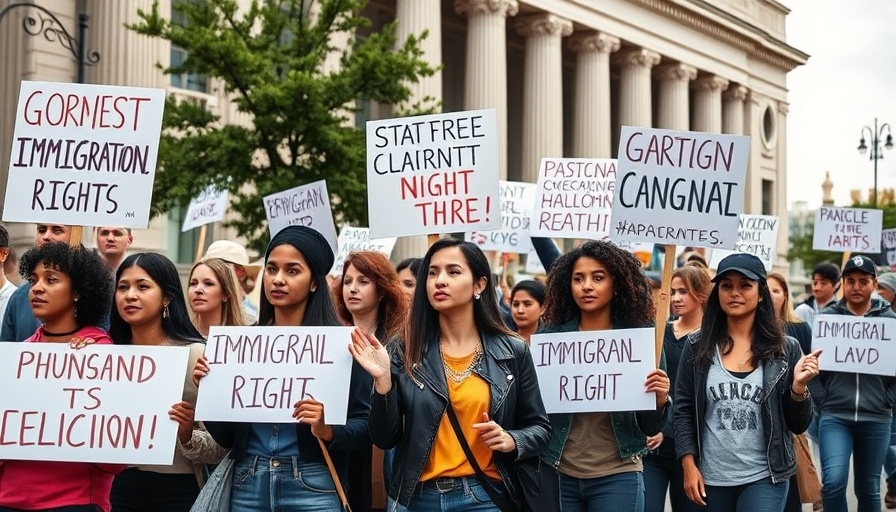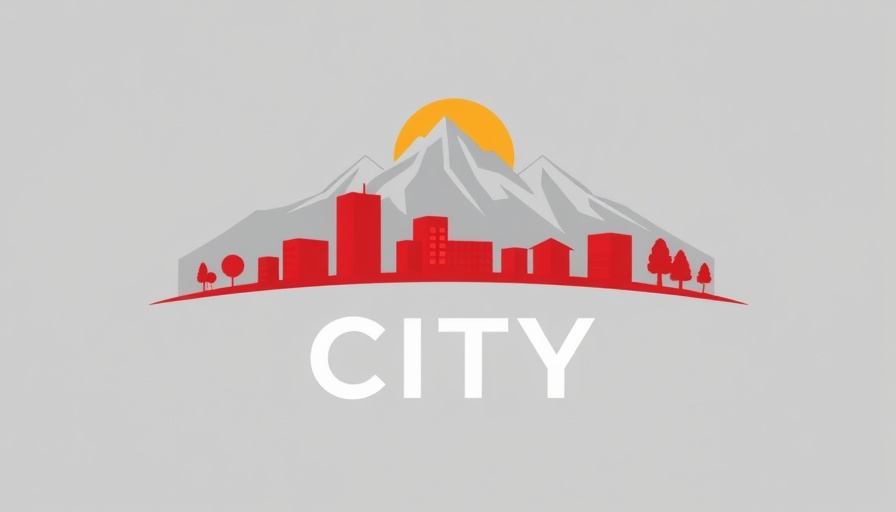
Where Do We Stand? The Role of Black Americans in Immigration Protests
In light of the recent protests against the deportations happening under former President Trump's administration, many in the Black community are asking an important question: what should our participation look like? As calls for unity and support for immigrants grow louder, Black Americans find themselves navigating through a complex conversation about allyship, community identity, and shared struggles.
A Collective Struggle: Understanding Our Intersections
For many members of the Black community, the fight against deportations is more than just a separate issue; it is intricately linked to their own lived experiences of systemic oppression. Community voices echo a sentiment that solidarity among marginalized populations is essential. "I feel that we shouldn't be ignoring everything that's going on... we will be affected, harshly too," explains Alamamy Kamara from South Fulton. His perspective offers a critical reminder that injustices against one group can reverberate and affect others.
The Importance of Community Building Amidst Crisis
As expressed by Dizzy U. from South Atlanta, fostering relationships in our neighborhoods is crucial. Instead of relying on external entities often slow to act, Black Americans are reminded of their strength in unity. Hosting community events can serve as both a means of empowerment and a way to provide assistance to others. This proactive approach not only strengthens ties within the community but also amplifies the resilience needed to fight against oppressive forces.
Counterarguments: Not Everyone Sees the Need for Engagement
While many advocate for solidarity, some offer a contrasting viewpoint, arguing that the response should focus primarily on our community’s needs. "We should always have our eyes open,” states one individual, highlighting a sentiment that some might believe pursuing this fight can detract from pressing Black issues. This raises a critical discussion around prioritization and resource allocation in advocacy.
Future Implications: What Does This Mean for the Next Generation?
The conversations happening now regarding participation in immigrant rights movements not only affect immediate outcomes but also shape the future of racial and social justice movements. If Black Americans actively support immigrant communities, it paints a broader picture of coalition-building that could inspire future generations to embrace diversity and mutual aid.
Realizing the Power of Communication and Allyship
Katonna Barnes from Villa Rica conveys another significant aspect; that the essence of community is a supportive family. “We should support them anyway because it’s like a big family,” she states. This mentality reinforces the belief that collective engagement in diverse struggles reinforces solidarity. The interplay of different movements can serve as a foundation to uplift not only ourselves but others too. It’s an evocative call to consider how we can leverage our voice and resources in times of need.
Moving Forward: Practical Steps Towards Action
So, what can Black Americans do? Engaging in community dialogues, attending protests, and proactively supporting immigrant families in whatever ways possible are just some of the ways individuals can make a difference. It can begin with simple actions such as promoting awareness on social media or volunteering with local organizations that provide support to immigrant communities.
In conclusion, as conversations around Trump’s deportations continue to unfold, the Black community is encouraged to critically evaluate our place within these discussions. While some may argue the necessity of focusing on our struggles, history has shown that collective emancipation is crucial for long-lasting change. Embracing intersectionality, empathy, and action are essential steps towards not only defending our rights but also setting a precedent for transformative social justice.
 Add Row
Add Row  Add
Add 




 Add Row
Add Row  Add
Add 

Write A Comment